Source: European Council/ Council of the European Union
EU member state ambassadors have agreed on the Council’s mandate for a new law that will make it easier to exchange and access health data at EU level.
The proposed regulation for a European Health Data Space (EHDS) aims to improve individuals’ access to and control over their personal electronic health data, while also enabling certain data to be reused for research and innovation purposes. It provides for a health-specific data environment that will help foster a single market for digital health services and products.
Currently, cross-border access to health data varies across the EU. The new rules aim to make it possible for a Spanish tourist to pick up a prescription in a German pharmacy, or for doctors to access the health information of a Belgian patient undergoing treatment in Italy.
Easier access to health data for individuals
Under the new rules, individuals will have faster and easier access to electronic health data, regardless of whether they are in their home country or another member state. This will benefit EU citizens by facilitating better informed decisions and the provision of safer healthcare across borders. They will also have greater control over how that data is used. The infrastructure already in place to facilitate the cross-border exchange of electronic health data, MyHealth@EU, will be expanded. EU countries will also be required to set up a digital health authority to implement the new provisions.
Greater research potential
The EHDS will also provide researchers and policy-makers with access to specific kinds of anonymised, secure health data, enabling them to tap into the vast potential provided by the EU’s health data to inform scientific research, develop better treatments, and improve patient care.
A new platform, HealthData@EU, will be established to support cross-border access to health data. At national level, health data access bodies (HDABs) will review requests for access to data and issue data permits.
Ensuring interoperability
Currently, the level of digitalisation of health data in the EU varies from one member state to another, making it more difficult to share data across member-state borders. The proposed regulation requires all electronic health record (EHR) systems to comply with the specifications of the European electronic health record exchange format, ensuring that they are interoperable at EU level.
The Council’s position
The mandate agreed upon today develops the Commission’s proposal in a number of key areas:
- greater clarity: the Council’s mandate provides clarity on issues such as the scope of the regulation, alignment with the General Data Protection Regulation (GDPR) and the criteria for providing access to electronic health data
- steering groups: in its mandate, the Council proposes the creation of two steering groups, made up of member-state representatives, to manage MyHealth@EU and HealthData@EU; other stakeholders may be invited as observers to discuss relevant issues
- governance: the mandate expands the role of EU member states in the proposed EHDS governing board and requires national digital health authorities to publish an activity report every two years
- EHRs: under the Council’s mandate, the European electronic health record exchange format may have separate national and cross-border profiles
- opting out: member states will have the discretion to allow patients to opt out of the new data-sharing system
The mandate also delays the application of the regulation to two years following its entry into force.
Next steps
The EU Council presidency now has a mandate to begin negotiations with the European Parliament as soon as possible, with a view to reaching a provisional agreement on the proposed regulation. The Parliament is expected to finalise its position on 13 December 2023.
Background
On 3 May 2022 the European Commission published a proposal for a regulation creating a European Health Data Space (EHDS). The proposal is the first of nine European sector- and domain-specific data spaces set out by the Commission in its 2020 communication, ‘A European strategy for data’.
The aim of the EHDS is to make it easier to access and exchange health data across borders, both to support healthcare delivery (‘primary use of data’) and inform health research and policy-making (re-use of data, also referred to as ‘secondary use of data’). It is considered a key pillar of the European Health Union.





